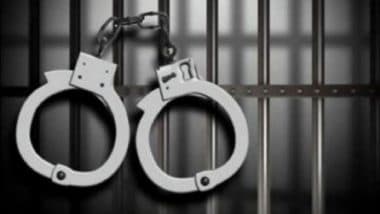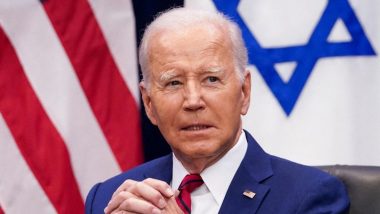Santiago, Oct 20 (AFP) Fresh clashes broke out in Chile's capital Santiago on Sunday after two people died when a supermarket was torched overnight as violent protests sparked by anger over economic conditions and social inequality raged into a third day.
Police and the military fired tear gas and used water cannons against protesters.
Nearly 10,000 soldiers have been deployed while an overnight curfew was imposed on Santiago and a state of emergency called in five regions.
Interior and Security Minister Andres Chadwick said two women burned to death in the blaze at a store owned by US retail chain Walmart in the early hours of Sunday.
The third victim, who authorities initially had said had died in hospital, suffered burns on 75 per cent of her body.
The deaths were the first in the worst unrest since Chile returned to democracy in 1990, following the dictatorship of General Augusto Pinochet.
Chadwick said two people suffered gunshot wounds following a clash with police who responded to a report of looting in a town south of Santiago.
Authorities reported 103 serious incidents throughout the country with 716 people detained.
It is the first time in the post-Pinochet era that troops have been deployed in what has otherwise been one of Latin America's most stable countries.
Protesters set fire to buses, smashed up metro stations, knocked down traffic lights, ransacked shops and clashed with riot police in Santiago and other cities.
Almost all public transport in the capital of seven million people was paralyzed on Sunday even after the curfew ended at 7:00 am, with shops shuttered and many flights in and out of Santiago's international airport cancelled.
Louis de Grange, president of the state Metro S.A. company, told Canal 13 the "brutal destruction" of Santiago's metro service had caused more than USD 300 million in damage.
The violence comes just a month before some of the world's most influential leaders, including US President Donald Trump and China's Xi Jinping, are due in Santiago to discuss trade at the Asia-Pacific Economic Cooperation summit.
What started earlier in the week as a protest against a hike in metro fares, escalated dramatically on Friday as demonstrators expressed anger over social inequality and the government's liberal economic system.
On Saturday, Chile President Sebastian Pinera announced he was suspending the fare increase, a day after declaring a two-week state of emergency.
Pinera acknowledged that those in the streets had "good reasons" to protest but called on them "to demonstrate peacefully."
"Nobody has the right to act with brutal criminal violence," he said.
The appeal failed to prevent further rioting and looting, not just in Santiago but also in the cities of Valparaiso and Concepcion, where a state of emergency has also been declared.
Soldiers have been deployed in the capital as well as the O'Higgins and Coquimbo regions that have experienced unrest.
"It's really sad what's happening but the people are outraged because they're not being listened to," 26-year-old Antonia told AFP in central Santiago.
AFP video on Saturday showed security forces blasting a crowd with water cannon, and riot police wrestling young protesters into vans.
Army General Javier Iturriaga, who is overseeing security during the state of emergency, said he was considering reapplying the curfew on Sunday night.
Dozens of protesters torched a building belonging to Chile's oldest newspaper, El Mercurio, in Valparaiso on Saturday evening, while elsewhere in the port city a metro station, supermarkets and other stores were set on fire.
Santiago's entire metro system -- South America's largest and most modern and used by around three million people a day -- was shut down on Friday as protesters burned and vandalized stations.
At least 78 stations were damaged, some of which were totally destroyed and could take months to get operational again.
"This surprised me, we thought everything was calm and we could be safe here, and then this happens, it's incredible," said Kendrick Chourio, 31, who moved to Chile from crisis-ridden Venezuela six months ago.
The hike in fares that set off the violence would have raised the price of peak hour travel from 800 to 830 pesos (USD 1.13 to USD 1.15).
The government said the hike, which followed a 20-peso increase in January, was driven by rising oil prices and a weakening peso.
Initially, students and others responded by fare-dodging, but underlying social tensions quickly bubbled to the surface.
On Friday, the headquarters of the ENEL Chile power company and a Banco Chile branch -- both in the center of Santiago -- were set on fire and heavily damaged.
People were infuriated by a photo of Pinera eating pizza in a restaurant with his family while the city burned.
Chile has the highest per capita income of Latin America at USD 20,000, with expected economic growth this year of 2.5 percent and just two percent inflation.
But there is an undercurrent of frustration with an economic model that has virtually privatised all health care and education, at a time that falling pensions and rising costs of basic services have exacerbated existing social inequality. (AFP)
(This is an unedited and auto-generated story from Syndicated News feed, LatestLY Staff may not have modified or edited the content body)


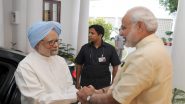

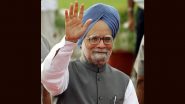
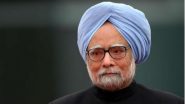
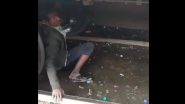

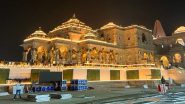



 Quickly
Quickly









